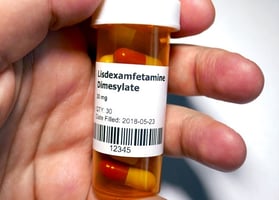Digital Self-Help Tool May Reduce Binge Eating

A web-based cognitive-behavioral self-help program helped adults in Europe with binge eating disorder reduce their frequency of binge eating episodes and clinical impairment, according to a report in JAMA Network Open.
“Binge eating disorder is a frequent and debilitating disorder with considerable societal and personal burdens,” wrote Luise Pruessner, M.S., of Heidelberg University in Germany, and colleagues. “However, traditional treatments have faced constraints, such as limited access, stigma, and high cost, underscoring the need to explore alternative intervention delivery methods.”
The study involved 154 German-speaking adults (96% women) in Europe; half received 12 weeks of the web-based program, while half were put on a wait list. A diagnosis of obesity was not required, but individuals with bipolar or psychotic disorders, substance dependence, anorexia or bulimia, severe depressive episodes, or suicidality were excluded. Researchers utilized a wide array of validated assessment tools to capture changes in eating behavior.
The web program consisted of six required modules focused on self-monitoring of binge eating, psychoeducation, and emotion regulation, followed by six elective modules of participants’ choosing.
After 12 weeks, participants with access to the web-based program reported an average of nine fewer binge eating episodes in the past month compared with baseline. Those on the wait list reported a past-month reduction of 0.68 episodes from baseline, a change deemed not clinically significant. Participants with access to the program also experienced a greater reduction in clinical impairment and greater improvement in well-being compared with the wait list group.
On average, participants with access to the intervention completed 7.65 of the 12 modules, and the researchers noted that completing more modules was associated with larger reductions in eating psychopathology. They also called for a future study with a 12-month follow-up to capture the program’s potential long-term effects. Pruessner and colleagues also noted the need for targeted strategies to engage male and older populations, who are often underrepresented in studies of web-based interventions for binge eating disorder.
“This randomized clinical trial demonstrated that offering access to a web-based intervention significantly enhanced the daily lives of participants with [binge eating disorder],” authors wrote. “The provision of accessible and effective treatment options holds promise for improving the everyday experiences of patients with [binge eating disorder], as well as for diminishing its adverse health effects.”
For more information, see the Psychiatric News article, "APA Releases Updated Guideline for Treating Eating Disorders."
(Image: Getty Images/iStock/domoyega)
Don't miss out! To learn about newly posted articles in Psychiatric News, please sign up here.





